Reading time 5 min
INRAE and its North American partners strengthen their scientific and institutional cooperation
Published on 06 June 2023
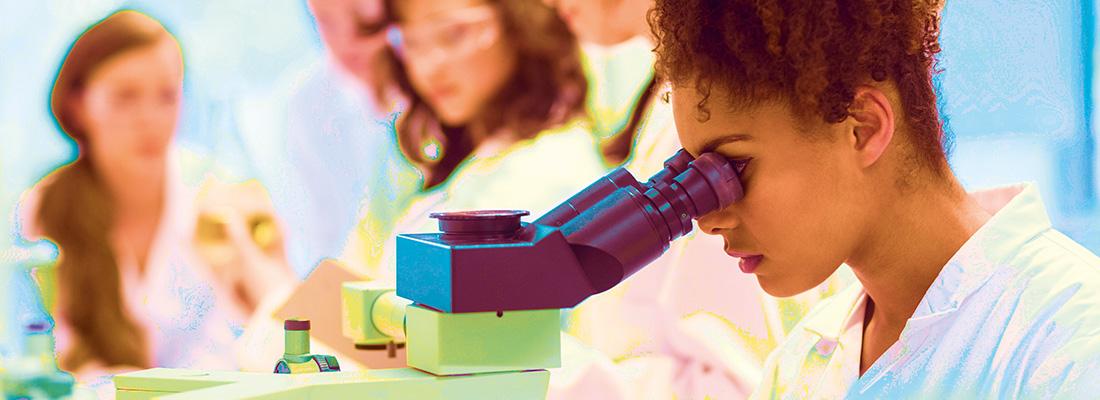
New progress in our partnership of excellence with Université Laval
INRAE and Université Laval took the opportunity to renew their existing partnership for 2023-2027 and to launch the new International Associated Laboratory for Farm Animal Nutrition and Modelling for Sustainable Feeding Systems (LIA Nutri-Mod). In partnership with Université Laval and AgroParisTech, this LIA is led by INRAE’s Animal Physiology and Livestock Systems Division.
This key partnership for INRAE is founded on a shared history of trust and quality that continues to grow. In Canada, Université Laval is INRAE’s main co-author partner, with an array of joint papers on a range of topics to their names. Their cooperation has developed and is now structured by two LIAs and three International Research Networks (2RIs) working on the impact of nutrition on mental health, the quality of dairy products and forestry. Experts from Université Laval will also be involved in two of the Institute’s two forthcoming international research initiatives investigating the use of agroforestry to adapt to climate change and the agroecological protection of crops.
The signing of this new framework agreement continues and expands on the previous agreement with Université Laval inherited by INRAE from Irstea in 2020. It offers the chance to benefit from further areas of research excellence at INRAE and new orientation of in the work of Université Laval.
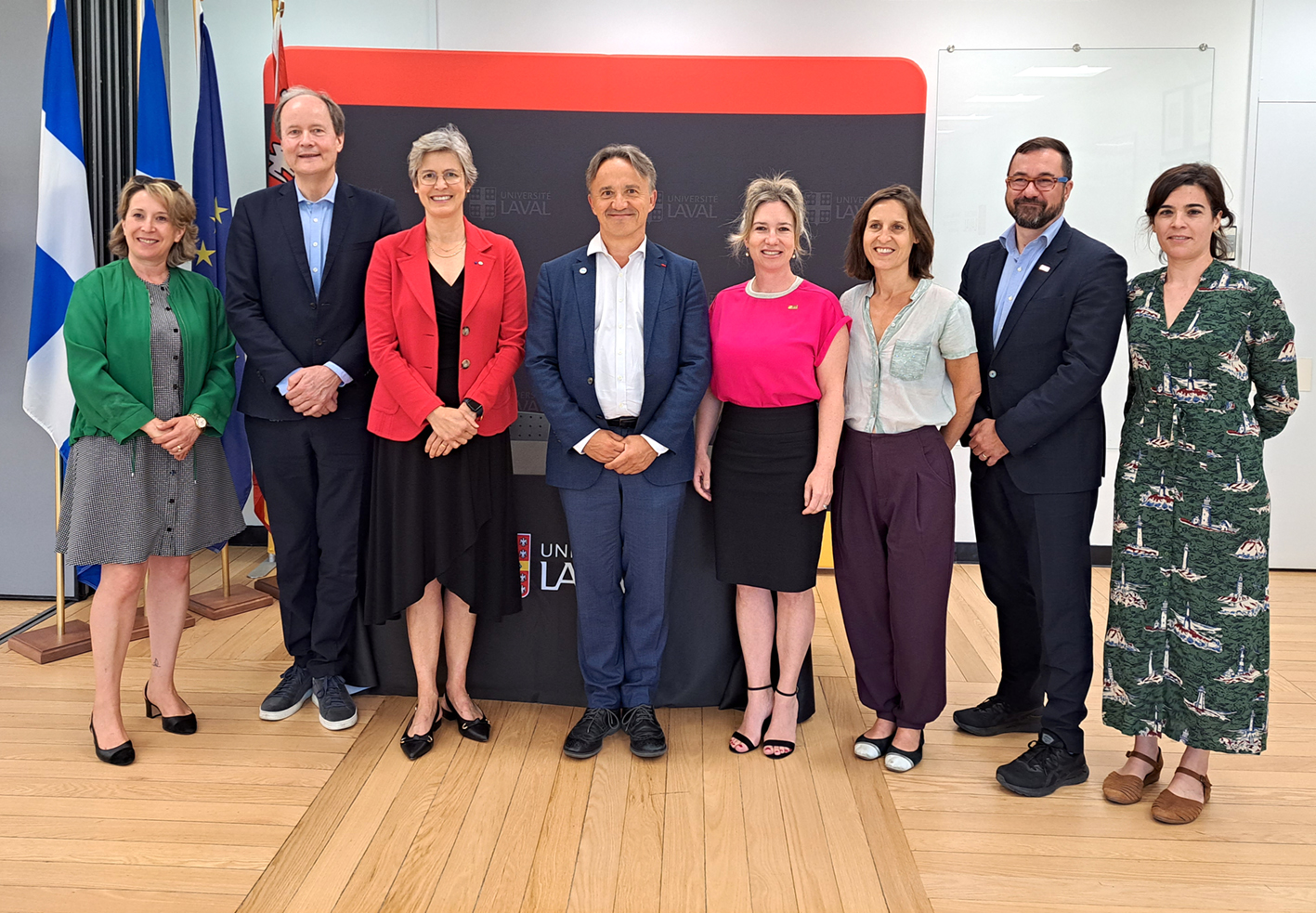
The new Nutri-Mod LIA, jointly run by Agnès Narcy (INRAE) and Marie-Pierre Létourneau-Montminy (Faculty of Agriculture and Food Sciences at Université Laval), is the product of a shared personal and professional adventure between the two project leaders. ‘We met in 2007, Marie-Pierre was working on her doctoral thesis at INRAE. On her return to Canada, she obtained a research Chair at Université Laval in 2013 and we carried on working together on mineral nutrition’, Agnès Narcy explains. The pair’s collaboration gradually grew into a research network that enabled PhD thesis co-supervision, mobility opportunities for scientists and the production of joint research. Its activities have to date produced more than 20 original published papers.
This LIA is intended to strengthen the dynamic of knowledge production on monogastric animal feeding systems as a means to improve the sustainability of livestock farming in both Europe and Canada. It addresses the challenges faced by livestock farmers on both continents by contributing to the development of innovative animal nutrition strategies that can meet environmental obligations. While such strategies concern, in the first instance, the management of natural resources, they also address animal health and welfare challenges and must be economically viable.
One original feature of the approach is to integrate fundamental knowledge on feeds and animals into models to develop tools that can evaluate multicriteria strategies. This combination of core information and decision-making tools makes it possible to provide practical solutions to actors on the ground.
“We see this LIA as the chance to formalize this great collaboration which is both fluid and complementary. It encourages us to continue our work and realize the potential of our research which is of particular interest in the knowledge it produces, both for the animal feed profession and, more generally, for all actors working in the relevant animal sectors.” Agnès Narcy
The opportunity to get international double degrees for co-supervised theses in this LIA is also expected to increase its international appeal for students.
A chance for participants to catch up on current scientific partnership projects
Members of the INRAE delegation were also able to visit the Université Laval’s three Faculties (forestry, pharmacy, agriculture) where formal cooperative projects are already at work, along with the Institute of Nutrition and Functional Foods (INAF).
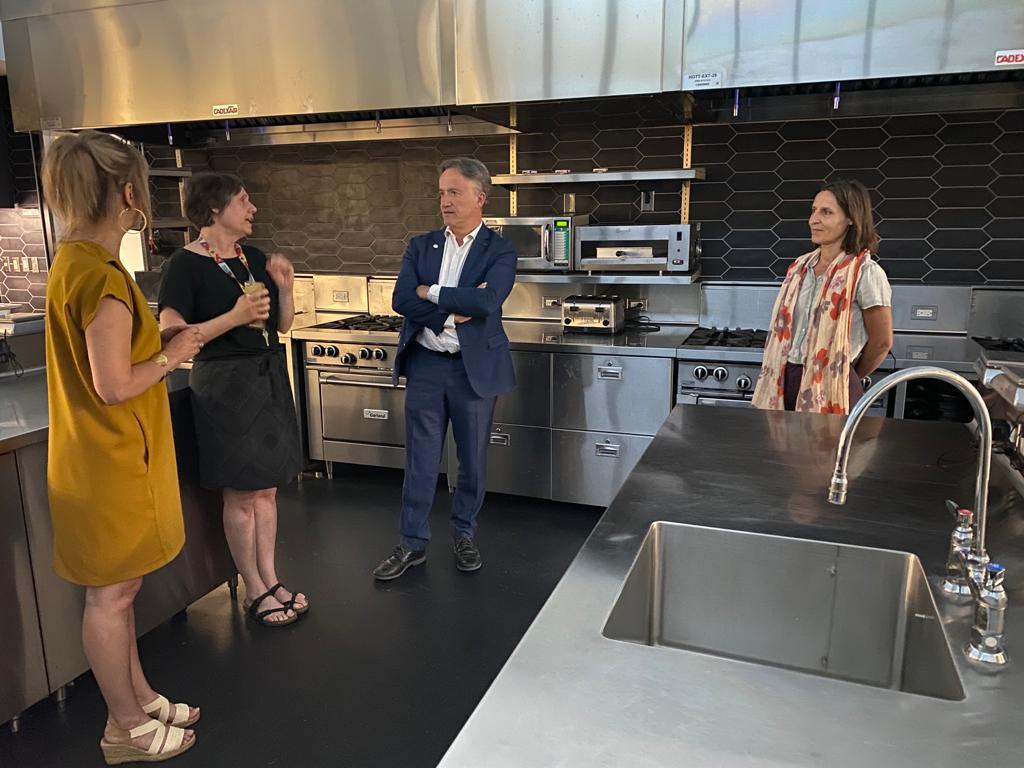
“The existing cooperation between Université Laval and INRAE operates at the highest international level and will be a source of innovation in fields as varied as dairy farming, preventive nutrition and forestry” Philippe Mauguin
-
The FORWARD international research network (2RI) on ecological transition and forest-wood systems involves five other Franco-Canadian partners: Bordeaux Sciences Agro, the University of Bordeaux, the FCBA technological institute, the Canadian Forest Service (part of Natural Resources Canada) and FPINNOVATIONS. Launched in 2022, its focuses on supporting the forestry sector in setting up major mitigation and adaptation initiatives to global challenges.
-
The OptiNutriBrain LIA, working on links between nutrition and brain health was the first LIA to be launched at INRAE, back in 2014, in partnership with the University of Bordeaux, Bordeaux INP and Université Laval. Its purpose is to determine the optimal diet for lifelong brain function by protecting against the development of neuropsychiatric and neurodegenerative pathologies.
-
The Food4BrainHealth network on nutrition and mental health: from predictive biology to the prevention and treatment of diseases, which has now extended to include 13 prestigious French and Canadian institutional partners.
-
The Galactinnov 2RI involves 10 INRAE research units and teams who are working with 4 university members of the Quebec “Op+lait” consortium to build a cooperative network supporting high quality milk and dairy products, while respecting the environment and the welfare and health of animals and humans. The network is already active in organizing symposia and developing mobility and exchanges between laboratories. In 2022, 3 noteworthy projects were supported by Galactinnov. The first studied the determining factors in the vitamin B enrichment of milk products, the second explored microbial approaches to the prevention of mastitis in bovines, and the third addressed the sustainable management of human health and animal welfare linked to outdoor access.
McGill University is also a participant in the Galactinnov and Food4BrainHealth networks and figures third on the list of INRAE’s Canadian co-publication partners. Discussions on this visit allowed exploration of the basis on which collaborative working in the fields of food traceability, soils and environmental ecosystems, biocontrols and the prevention of zoonoses could move forward. Like INRAE, McGill is a member of the major international PREZODE initiative.
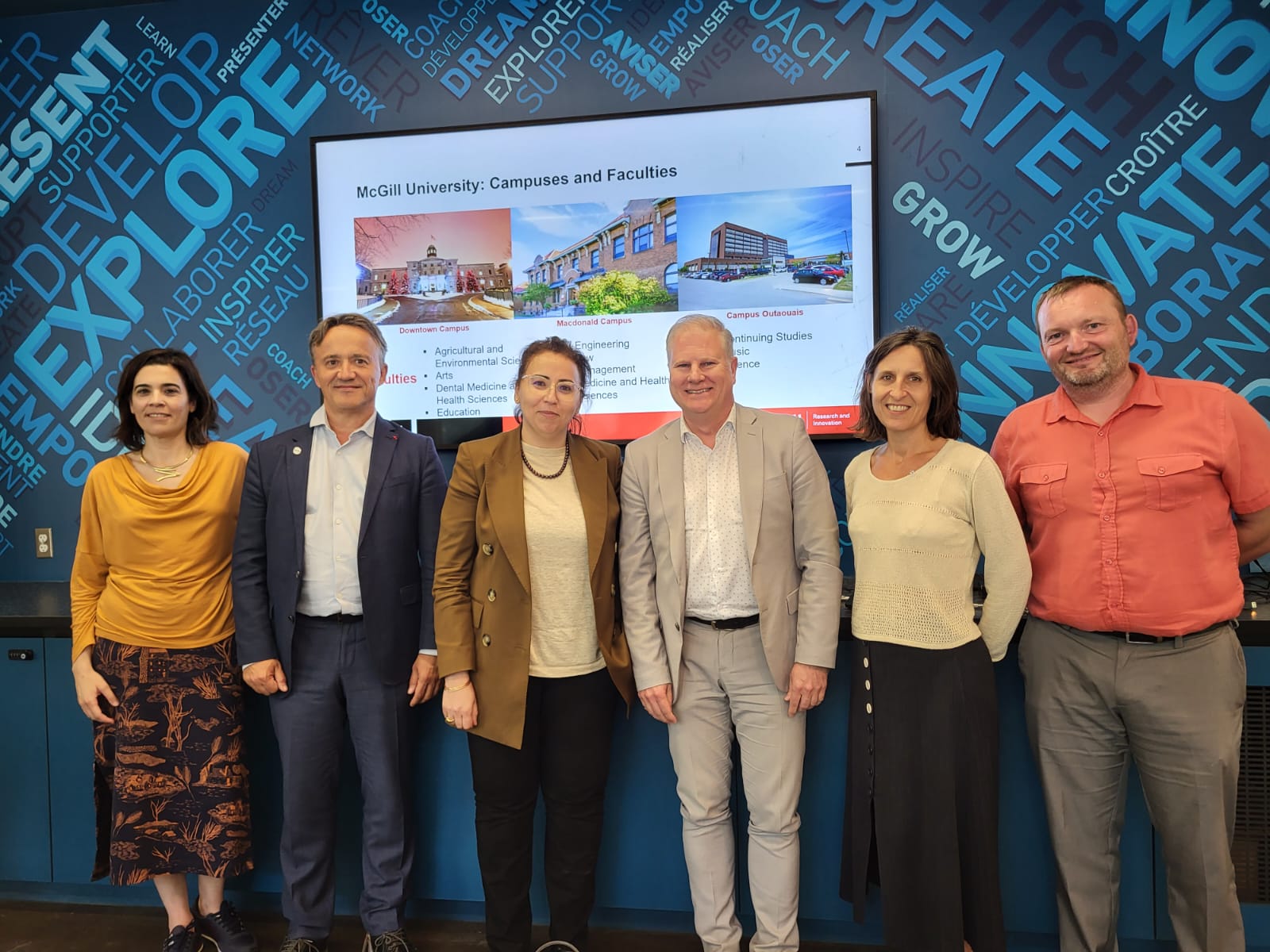
An International Associated Laboratory formalizing the partnership with Michigan State University
On his visit to Michigan State University (MSU), Jean-François Soussana signed the formal agreement for a new LIA on the molecular mechanisms involved in plant mineral nutrient adaptation to climate change (IN-COMBI, Inclusive Nutrition: combinatorial nutritional signals drive plant responses to climate change). This delivers on the letter of intent agreed between MSU and INRAE in October 2022, which recognized the potential for collaboration. A framework cooperation agreement will be drawn up in Autumn 2023.
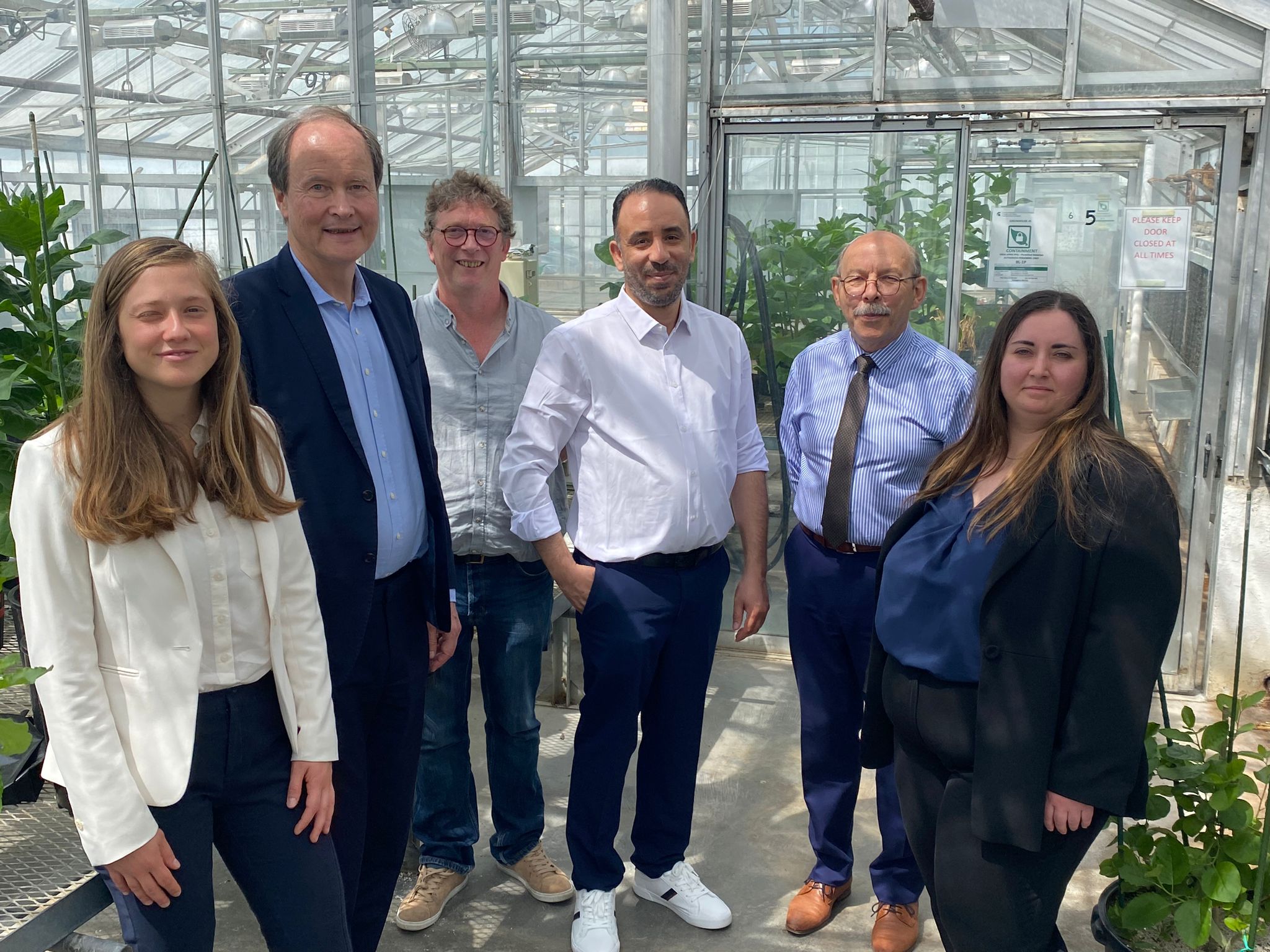
“As the oldest agricultural University in the United States, MSU is a heavyweight partner. Many areas for joint working were discussed, not least plant science and soil health” Jean-François Soussana
Coordinated by the Plant Biology and Breeding (BAP) Department at INRAE, the IN-COMBI LIA also brings Montpellier’s Institut Agro and the University of Montpellier on board. The impetus for the project came from Benoît Lacombe and Sandrine Ruffel (INRAE’s IPSiM Unit) and from Hatem Rouached at MSU, who share a long history of collaboration. Their intention is to use the LIA to study the interactions between the nutritional components of plants in response to climate change, spurred by the need to break down research silos where each nutrient were being studied individually. "At INRAE we had teams for each nutrient, but we were aware that all these elements were interacting with each other to produce emergent properties. It is therefore very useful to work with the Plant Soil and Microbial Science Department at MSU, who have a more multidisciplinary approach", Benoît Lacombe explains. For the MSU teams, the desire to collaborate is also inspired by the high quality of the education and training through research received by students in France.
This LIA provides the opportunity to formalize and secure the future of this collaboration, which responds to public expectations surrounding climate change and environmental issues. Teaching and training lie at its heart, facilitated by the exchanges and mobility opportunities the agreement affords to researchers and doctoral students from the participant institutions. Contributions from MSU researchers to French educational programmes are already planned as part of the LIA. It should also allow greater access to research funding.
